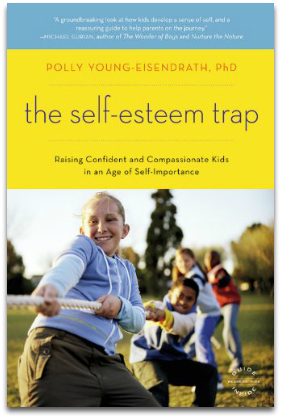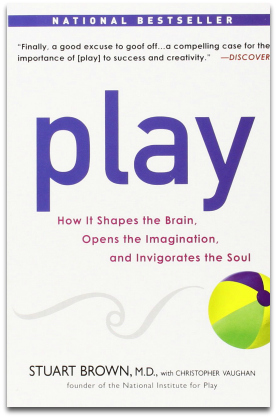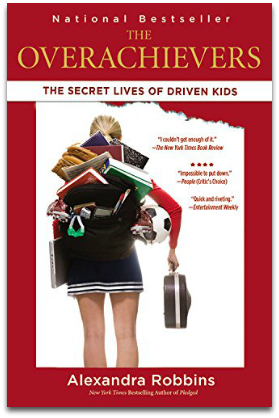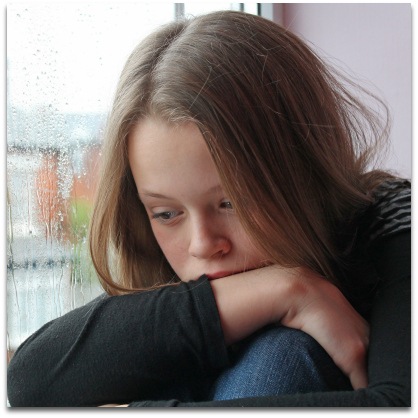 Han Solo may have gotten the princess and light-sabered his way to heroism, but his parenting skills didn’t win any awards.
Han Solo may have gotten the princess and light-sabered his way to heroism, but his parenting skills didn’t win any awards.
While superheroes rushing to the rescue may bring in box office accolades, that behavior backfires for parents who want our kids to succeed in a challenging galaxy.
New York Times Parenting blogger Jessica Lahey points to research that most of our kids’ inability to deal with failure, and therefore succeed, stems from our generation’s unwillingness to step away from our kids.
Helicopter parent. Raising my hand right here. Guilty. I did once practically bribe other kids to come to my daughter’s birthday party.
To give children the skills they need to fail successfully (yes, that’s a thing), parents need less Han and more Obi-Wan – watch, listen, dialog, model. Your young jedi will thank you some day for teaching him how to deal with failure effectively using these 10 ways –
#1 Rescue Dogs, not Kids
My name is Jill, and I am an enabler.
I drove the homework to school. I glued the posters back together in the County Fair tent five minutes before 4H judging.
Once, I even drove forty minutes to bring my 13-year-old her cleats for a track meet. I was frazzled from rush hour driving. She was anxious over potentially missing a race. I did not encourage well; she did not run well. We both ended up stretched like a rubber band on a slingshot, not the most convivial mood to drive home.
Rather than dashing to get her the shoes, making her sit out the meet would have: allowed me to sympathize rather than get angry; let her think about how much she liked to race and how to avoid this situation; not inhibited her ability to make the Olympic track team; and taught her not to forget her shoes again (maybe).
Forgotten homework, a poor piano performance, sitting out a soccer game—none of these will keep your kid from getting to Harvard, Carnegie Hall, or the World Cup.
Inability to emotionally handle a setback, an honest critique, or occasional failures could however keep her from staying there.
In questioning “Why Are Today’s College Students So Emotionally Fragile?” Diane Dreher explains how brain development for coping with stress only occurs when a child works through difficulties in life. When parents shield their kids from less than perfect results, brain connections used in problem solving never fully develop.
If a potential failure will not result in serious bodily harm or devastating embarrassment, let the child fail without Super Parent to the rescue. Allowing for small failures now teaches a child the skills to deal with, and perhaps even avoid, bigger ones later.
I know, we don’t want to see our offspring hurt. Better a little sting now than an emotional meltdown later when he has to cope with twelve job rejections right after college.
We’ve done that, too.
#2 Talk Through the Scenarios
Our third daughter is a planner. She doesn’t handle the unknown well. She likes to know what to expect, what is expected of her, and what she has to do to make sure none of that changes. She requires a lot of talking down off the figurative ledge. Since all three girls spent about ten years in community theater, we used many audition days – times when failure is inevitable – to talk through those worries.
What not to say: “You won’t fail.” “You’ll be great.” “They’d be crazy not to take you.”
Problem is, I can’t make that guarantee. I can’t promise she won’t be terrible. Plus, I don’t know all the factors going into whatever judgment she’s up against. Will she trust me again after she does fall on her face in that audition?
Instead, ask this question: “What’s the worst that can happen?” Whatever the answer, pursue it to the end.
“I’ll be embarrassed.”
So? What’s the worst that can happen with that?
“I won’t get the part.”
So? What’s the worst that can happen with that?
You get the idea.
 Polly Young-Eisendrath offers some other helpful discussion points in her book The Self-Esteem Trap
Polly Young-Eisendrath offers some other helpful discussion points in her book The Self-Esteem Trap –
Say something like, ‘I can see you’re upset. What do you think is a good first step here?’ Plan a family meting once a week where individuals are invited to bring up problems. Ask questions about a child’s thoughts rather than problem solve.
Taking this logic to its end helps a child see that she can go into the audition/recital/interview knowing that whatever happens, it’s not really the worst. Helping her work through what could happen if she fails helps her face the fear of it.
I mean, who can’t figure out that the worst thing that can happen if you don’t get the Wicked Witch part in Wizard of Oz is that you never have to go to school with green ears for a week? Stage makeup is a beast.
#3 Value Unstructured Play Time
Free time is when kids imagine, explore, and create. These are the formative hours for developing skills to problem solve. Scheduling kids so tightly that they lose this time cripples their creativity, which is key to dealing with failure.
 In studying mammals at play, play expert Dr. Stuart Brown learned that bear play and human play accomplish similar results. In his national bestseller book Play: How it Shapes the Brain, Opens the Imagination, and Invigorates the Soul
In studying mammals at play, play expert Dr. Stuart Brown learned that bear play and human play accomplish similar results. In his national bestseller book Play: How it Shapes the Brain, Opens the Imagination, and Invigorates the Soul, Dr. Brown explains –
In a world continuously presenting unique challenges and ambiguity, play prepares (animals) for an evolving planet. The bears that played the most were the ones who survived best. Play allows pretend rehearsal… a rehearsal in which life and death are not at stake. Play lets animals learn about their environment and rules of engagement.
Unstructured play also allows kids to work out potential relationship issues. It’s in learning how to take turns with the swings, create an alternate world in the woods, or cope with a rule-flouting bully that kids figure out rule making, negotiation skills, and the heeding of others’ (sometimes unspoken) language.
When my friend Mary’s kids run to her with accusations of “She hit me!” her response is usually something like, “What did you do?” Inevitably, there is a sheepish admission — “I took her princess party hat,” and mom replies with, “Well, what did you expect her to do then?”
My friend doesn’t automatically step in to settle the dispute or hand out punishment unless the situation is dangerous. While this surprised me at first (hello, helicopter mom), I see its wisdom now. Not stepping in forces kids (and frees them) to figure out for themselves the cause and effect of social behavior.
Professors now see an epidemic of college students unable to navigate these social waters, having grown up in such structured, adult-engineered environments they never learned the basics of playground politics.
Cause and effect teach better than a parent playing labor dispute manager. Because we all know how well that works anyway.
#4 Watch Out for (Too) Great Expectations
“I love your poster display! Maybe you could add a little more information here, and you know, your handwriting is kind of . . . well, why don’t you use stickers? It’s so much more polished.”
I parented way too many 4H posters for my own good. That was the problem – I was invested in them. Too invested. I knew how hard it was for my kids to face the judges, and I wanted them to do well.
As it turns out, having another, far more critical judge in the house backfires.
There is a line between encouraging a child to do better and creating an atmosphere of “you can always do better.” Sometimes, kids fail because they feel they can’t ever meet their parents’ unrealistic expectations. They come to accept failure as a given, often even intentionally failing to get it over with.
 In Alexandra Robbins’ book, The Overachievers: The Secret Lives of Driven Kids
In Alexandra Robbins’ book, The Overachievers: The Secret Lives of Driven Kids, she details the experiences of so many Millennial children: “Overachiever culture . . . contributes directly to young adults’ paralyzing fear of failure.”
Jessica Lahey refers to this release of expectations as The Gift of Failure, giving a child the freedom to love learning and risking, heedless of “academic and extracurricular perfection.”
Through much of high school, our oldest child repeatedly came close to finishing a class well and then completely bombed the final exam. Now I know why – she quit trying rather than risk a less-than-perfect result.
#5 Nudge Them Past It
When our daughter failed to fix a problem with her hamster’s cage, little Jalapeno passed on to hamster heaven. Her tender heart broke with the understanding that a small error had caused irreparable harm. She sobbed, berated herself, and couldn’t get past the image finding her pet dead in the cage.
Kids need the skills to dry the tears, learn from their mistake, and forgive themselves. That last one is the hardest.
Parents can relate to them times when we failed, and the consequences hurt others. We can share how we felt about that and how we had to accept our own capacity to fail. No one enjoys facing our basic humanity. Not accepting our own need for forgiveness and then granting it to ourselves, however, keeps us stuck in fear of a similarly painful failure.
We wanted our daughter to learn and grow, not swear off ever having another pet.
#6 Normalize Failure
Parents who shield their kids from failure leave another unintentional result. Their children come to regard failure as abnormal and unredeemable. A person for whom failure is seen as catastrophic and unacceptable internalizes the message that failure cannot be recovered from. It is terrifying.
Normalizing failure is one of the best things we can do for our kids. Let them see your own failures. Tell them stories of famous successes who have failed. Send them the message: Failure is normal. It happens to everyone. It is a part of life and learning. It is not shameful.
#7 Teach Grit
 Our daughter won the all-around gymnastics competition at her high school conference freshman year. Sophomore year, set to repeat, she had a devastating fall on the bars, one that gave her a concussion and confusion for weeks.
Our daughter won the all-around gymnastics competition at her high school conference freshman year. Sophomore year, set to repeat, she had a devastating fall on the bars, one that gave her a concussion and confusion for weeks.
For nearly a year, she feared getting back on those bars and dismounting. As I watched her at the same competition junior year, I knew how terrified she was to jump on that bar.
She jumped anyway. She had learned, through years of doing the same exercises day in and day out, that success came from getting back up off the ground and doing it again. And again. Gymnastics taught our child grit.
Grit is a big word these days. What is grit though?
Basically, it is the ability to persevere, maintaining effort despite setbacks and discouragements, with a marathon-type approach.
No one knows exactly how to teach grit, but we do know this much: a child who has experience in repeated practice, attempts, failures, and more attempts, as is inherent with our child’s gymnastics situation, learns the skills of dogged persistence.
We can help our children find their passion and pursue it, not with a competitive mindset, but with a determination to keep at it no matter what. This “grit” is key to returning stronger from failure.
#8 Fail by Example
Nine years ago, I resigned from a pastoral position that had become unbearable. The painful, messy, and confusing details could not be hidden from my family, so our kids got a front row seat to watch me work through the “why’s” and the “what I could have done differently’s.” They learned that painful, messy, and confusing are OK, and people survive and thrive past it.
If I refuse to fail in front of my kids, they will never learn how it’s done well. If all they see is successful mom or dad, they believe that failure is shameful.
As a corollary, I have to be willing to ask forgiveness from them when I fail them. This is a hugely meaningful way to teach a child that the right way to deal with error is to admit it, accept it, atone for it, and move forward.
When we parents talk freely about our failures and model how to move on and make amends, children learn the freedom of honest failure.
#9 Walk the Tightrope
 We have a special needs child. Sometimes she needs me to step in and keep her from falling on her face. Other times, she needs me to step back and let her reap what she has sown.
We have a special needs child. Sometimes she needs me to step in and keep her from falling on her face. Other times, she needs me to step back and let her reap what she has sown.
When kids bullied her in fifth grade, another child could have negotiated the situation on her own. But because of her disability, Becca did not have the social skills to do so and needed intervention.
But a few years later when her track coach complained she was not participating fully? She had to decide if she was going to muster the grit to continue track despite her depression. My intervening to get her special dispensation would have only worsened the relationship with the coach and taught our daughter that hard things would always be made easier for her.
With a special needs child, it’s tough to know which situation you’re in, especially as it unfolds. Parents need wisdom here, and guess what? Sometimes, we will fail to make the right choice. See #8 above.
#10 Have Fun
With sensitivity, learn to laugh at your own failures and teach your child to do so as well. Obviously, this doesn’t mean howling when your kid falls on her face in the gymnastics meet. It does mean that learning to have a sense of humor about our own faults and missteps helps us to cope with the bigger ones.
So, we can laugh together when I take the crème brulee bars for church group out of the oven and they are not brulee but in actual flames. The ability to laugh at small failures gives us the resiliency not to be frustrated at larger ones because we’ve learned to smile and start over.
Put down the light sabers, parents. Let the little jedi fall. They will be stronger for it.
The 2-Minute Action Plan for Fine Parents
For our quick contemplation questions today, consider these –
- What was the last small failure your child might have faced? (Or can you think of an imminent one?)
- What can you do (or could you have done) to step back and let it happen?
- What questions can you ask, later when the sting is lessened, to help make that failure a rehearsal for the next try?
The Ongoing Action Plan for Fine Parents
Let’s set a simple goal for ourselves this week – whatever the week throws at your child, allow her to explore and solve problems on her own. Refuse to interfere unless it is life-threatening. What do you see happening when your child is left on her own? How can you offer guidance from the sidelines? What will you each learn from the experience?
I loved this article. I am going to put this into practice and watch the results. I thought that I was positive, fun, and encouraging; a transparent and honest role model of a mother. I never reaized that how my children veiwed me was so different. Their point of veiw was like a knife in the gut. To them I had been overly controlling; good at everything I tried; and instead of encouraging them to aim high, I ended up pushing the goals seemingly out of reach.
I have since failed them in ways I never thought possible. My failure was not only public, but compounded by their father’s suicide.
I am now trying to cope with the backlash. Had I not been the mom who did everything, who fixed everything, who covered up every marital issue; maybe then at this point they would not see my failures as catastrophic and unrecoverable.
Thank you for putting a few things into a perspective for me, my goals now:
Ask forgiveness
Rectify whats in my power to do
Forgive myself
Move forward together
My daugter played her first netball game today and got on the field (to my shock and horror) as the B-team’s substitute. She’s 5 and only started playing a few weeks ago. To say the least, I was horrified and very upset. For most of my school years I played in the A
-team. My mom echoed what’s been said in this article about not intervening when your child doesn’t reach YOUR expectations for them. I realised that I’m projecting myself on her fragile state and that I have to take a step back. It’s going to be hard for me, but I have to. Thank you for the good advice! Thania, Vanderbijlpark, South Africa
After reading this what resounded with me the most was wondering if I have hidden MY failures in life from Riley in a way that would be detrimental to him. So I just asked him, “Hey! Do you think I’m successful in everything I do?” and he says “Ummm…I’d say about 80% successful.” so I said “Okay, have you ever seen me fail at something I was trying to do?” and he said “Well…no! haha! But I’m assuming you have.” So we talked about how he doesn’t think he’s ever SEEN me be upset about failing at something. This conversation coupled with this article have made me realize I need to share my frustrations and thoughts with him when I suck at something or a project doesn’t turn out as intended because HE needs to learn by seeing…exactly how to deal with defeat and how to stay positive and move on graciously.
Thanks, Elizabeth. It is so cool to hear from someone who took the time both to leave a comment and to practice some of these ideas. I agree — what we think we’re conveying and what we really are aren’t always the same thing. I love your story!
I actually like the lightsaber analogy regardless if Hans Solo used it or not. Thank you for sharing your own personal stories of your children while helping us parents manage our own.
It always helps to know we’re not alone in either our mistakes or our triumphs. Thanks for letting me know!
Han Solo didn’t use a lightsaber.
Point taken. 😉